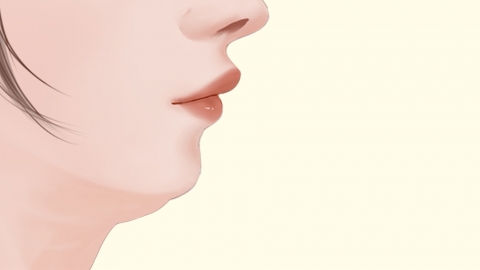What should be considered when undergoing cosmetic surgery for a double chin?
Generally, before undergoing cosmetic surgery for double chin, one should fully understand the surgical methods, choose a reputable medical institution and qualified surgeon, provide detailed personal health information to the doctor, strictly follow preoperative examination requirements, and adjust lifestyle habits. After surgery, attention should be paid to wound care and observation, swelling management, wearing supportive devices, dietary adjustments, and avoiding external forces. The detailed explanation is as follows:

I. Preoperative Considerations
1. Fully Understand the Surgical Method
Conduct thorough research on various double chin cosmetic procedures, such as liposuction, fat-dissolving injections, and thread lifts. Understand their principles, processes, expected outcomes, and potential risks to facilitate effective communication with the doctor and make informed decisions based on personal circumstances.
2. Choose a Reputable Medical Institution and Qualified Surgeon
Ensure the selected institution has legal credentials, a good reputation, and advanced equipment. Evaluate the surgeon's professional qualifications, background, experience, and previous successful cases to guarantee the surgery is performed in a professional and reliable environment.
3. Provide Detailed Personal Health Information to the Doctor
Disclose your medical history truthfully to the doctor, including any cardiovascular diseases, diabetes, coagulation disorders, allergies (e.g., drug, food, or contact allergens), and medications currently being taken, such as anticoagulants or blood pressure medications. This helps the doctor accurately assess the feasibility and safety of the surgery and develop a personalized plan.
4. Strictly Follow Preoperative Examination Requirements
Cooperate in completing preoperative tests, such as routine blood tests, coagulation function, liver and kidney function, blood glucose levels, and electrocardiogram (ECG), to ensure all health indicators are within the acceptable range for surgery. If any abnormalities are detected, follow the doctor's guidance for adjustments or further diagnostic evaluations.
5. Adjust Lifestyle Habits
Avoid smoking and alcohol consumption for a period before surgery, discontinue medications that may affect coagulation, such as aspirin, maintain a regular sleep schedule, ensure adequate rest, eat a balanced diet, and increase intake of proteins and vitamins to enhance immunity and tissue repair capacity.
II. Postoperative Considerations
1. Wound Care and Observation
If the surgery involves incisions, such as liposuction, keep the wound clean and dry after the procedure, avoid contact with water, and change dressings regularly according to medical instructions. Closely monitor for signs of infection, such as bleeding, discharge, redness, swelling, or warmth at the wound site, and seek medical attention promptly if abnormalities occur.
2. Swelling Management
Postoperative swelling is normal and can be reduced by alternating cold and warm compresses under the doctor's guidance. However, temperature and duration should be carefully controlled to avoid skin injuries such as frostbite or burns.
3. Wearing Supportive Devices
After liposuction, it is usually necessary to wear a facial compression garment as instructed and for a sufficient duration. This helps reduce swelling, improve contouring, and promote skin tightening.
4. Dietary Adjustments
In the early postoperative period, maintain a light diet and avoid spicy, greasy, or irritating foods, as well as seafood or other allergenic foods that may trigger reactions. Increase intake of proteins, vitamins, and minerals to promote wound healing and recovery, such as lean meats, fish, and fresh vegetables and fruits.
5. Avoid External Forces
Avoid strenuous exercise, exaggerated facial movements, or physical impact to the chin area after surgery to prevent complications such as implant displacement, wound dehiscence, or increased swelling.
It is recommended to visit a reputable hospital and follow the guidance of a qualified physician to ensure the safety and effectiveness of the procedure.




